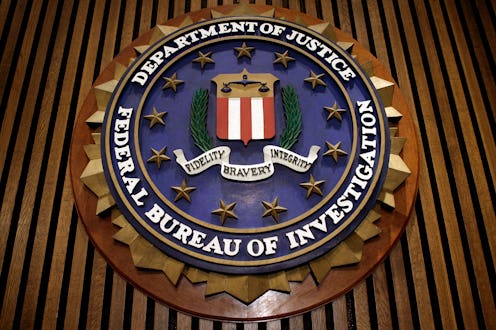News
Gov't to Review Cases That Used NSA Data
Attorney General Eric Holder announced Friday that the Justice Department will begin examining criminal convictions made with evidence obtained through the National Security Agency's warrantless "surveillance" programs. Holder's announcement follows on the heels of a similar case last month, when the Justice Department notified a defendant — an immigrant from Uzbekistan — that some of the evidence against him had been gathered by the NSA's spy programs. This was the first time such information had been made public. Like in the Uzbekistan case, if the upcoming review finds that evidence against specific defendants had been gathered using NSA programs, these defendants will be informed.
"We have a review underway now," Holder informed the Washington Post. "We will be examining cases that are in a variety of stages, and we will be, where appropriate, providing defendants with information that they should have so they can make their own determinations about how they want to react to it."
So, what options would the defendants then have? Well, if NSA data collection did lead to a conviction, experts believe that the Justice Department's notification of NSA involvement could provide a legal challenge to the surveillance programs. WaPo reports that the Supreme Court has previously declined to hear such a challenge, because there was no proof that the noticeably warrant-less surveillance had led to any convictions. Basically, no one had legal justification to sue.
In the case of the Uzbek who was notified that the spy data will be used against him, he's suspected of providing material aid to a terrorist group, and will soon face trial. It's unclear if he will act on the information the Justice Department gave him about NSA-supported evidence. His case was the first, but there will be more: the notifications will come on a rolling basis as the Justice Department learns of the individual cases.
Everyone remembers how this all started: Files exposing the NSA surveillance programs were leaked to journalists by former NSA contractor Edward Snowden. In addition to collecting metadata, as well as contact lists and subject lines, from the correspondence of U.S. citizens, the NSA also apparently spied on the leaders of Brazil, Mexico, and Germany. Later, the British government, which was also implicated in large chunks of the spy programs, detained the partner of American journalist Glenn Greenwald while he was transferring flights in London. They said that Greenwald's partner, David Miranda, was thought to be carrying files that might endanger the lives of Secret Service agents.
Throughout the scandal, President Barack Obama has maintained that he was not aware of the extent of the spy programs. As Bustle has noted, it seems peculiar, to say the least, that spy agencies were running amok without the president's knowledge. And it would be even more odd that, if this were true, there haven't been any high-profile firings — considering how much damage the leaks have done to Obama's international image.
In any case, it's promising that the Justice Department is looking into how the data obtained by the NSA is used. Because the program was shrouded in so much secrecy — and because the heads of spy agencies exhibited such contempt for oversight by democratically elected officials — it's good to have hope that the Supreme Court might finally set some guidelines about what is and is not allowable. Plus, it'll be an interesting showdown in the court: What side will arch-conservatives who claim to have a deep-seated belief in personal liberty take?
